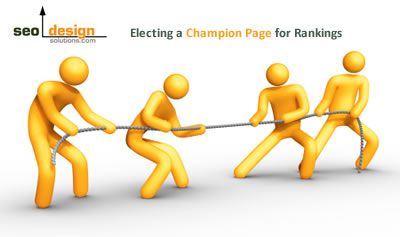search Engine Optimization Decoded
Search engine optimization is the process of increasing the quantity and quality of web visitors to your website. As your website begins to climb in rank for the most appropriate keywords, your site will gain more quality visitors and likely greater conversions.
A key component of search engine optimization is understanding the search engines. Did you know that approximately:
- 55% of searchers use Google
- 30% of searchers use Yahoo!
- 6% of searchers use MSN
As you can see, Google has a commanding lead over their competition. While Google is the #1 search engine to rank on, depending on your product or service offering, other search engines and directories will be beneficial for your company to rank at.
Other search engine stats to keep in mind:
- The top 15 listings in a search engine results page (SERPs) are the sites that get greater visibility and traffic
- Approximately 80% of traffic originates from search engines
- Approximately 60% of all search phrases are 3 or more words
- Approximately 80% of all searches are research based, not outright shopping in the beigining
- Almost 90% of clicks from Google organic (Approximately 70% at Yahoo!)
- Your competition is not just your industry competition, but sites that rank above you for your keywords
- Spamming is generally caught in 4-6 weeks
- The average website page changes 5 times per year
- Google has over 200 factors they consider to decide website rank
- More websites will link to your site if you offer free, valuable information
- No website has search engine optimization secrets
- The #1 keyword searched for at Yahoo! is . . . GOOGLE!
Search engine optimization (SEO) is the process of improving the volume and quality of traffic to a web site from search engines via "natural" ("organic" or "algorithmic") search results. Usually, the earlier a site is presented in the search results, or the higher it "ranks," the more searchers will visit that site. SEO can also target different kinds of search, including image search, local search, and industry-specific vertical search engines.
As an Internet marketing strategy, SEO considers how search engines work and what people search for. Optimizing a website primarily involves editing its content and HTML coding to both increase its relevance to specific keywords and to remove barriers to the indexing activities of search engines.
The acronym "SEO" can also refer to "search engine optimizers," a term adopted by an industry of consultants who carry out optimization projects on behalf of clients, and by employees who perform SEO services in-house. Search engine optimizers may offer SEO as a stand-alone service or as a part of a broader marketing campaign. Because effective SEO may require changes to the HTML source code of a site, SEO tactics may be incorporated into web site development and design. The term "search engine friendly" may be used to describe web site designs, menus, content management systems and shopping carts that are easy to optimize.
Another class of techniques, known as black hat SEO or Spamdexing, use methods such as link farms and keyword stuffing that degrade both the relevance of search results and the user-experience of search engines. Search engines look for sites that employ these techniques in order to remove them from their indices.
History
Webmasters and content providers began optimizing sites for search engines in the mid-1990s, as the first search engines were cataloging the early Web. Initially, all a webmaster needed to do was submit a page, or URL, to the various engines which would send a spider to "crawl" that page, extract links to other pages from it, and return information found on the page to be indexed.[1] The process involves a search engine spider downloading a page and storing it on the search engine's own server, where a second program, known as an indexer, extracts various information about the page, such as the words it contains and where these are located, as well as any weight for specific words, as well as any and all links the page contains, which are then placed into a scheduler for crawling at a later date.
Site owners started to recognize the value of having their sites highly ranked and visible in search engine results, creating an opportunity for both white hat and black hat SEO practitioners. According to industry analyst Danny Sullivan, the earliest known use of the phrase search engine optimization was a spam message posted on Usenet on July 26, 1997.[2]
Early versions of search algorithms relied on webmaster-provided information such as the keyword meta tag, or index files in engines like ALIWEB. Meta tags provided a guide to each page's content. But using meta data to index pages was found to be less than reliable because the webmaster's account of keywords in the meta tag were not truly relevant to the site's actual keywords. Inaccurate, incomplete, and inconsistent data in meta tags caused pages to rank for irrelevant searches.[3] Web content providers also manipulated a number of attributes within the HTML source of a page in an attempt to rank well in search engines.[4]
By relying so much on factors exclusively within a webmaster's control, early search engines suffered from abuse and ranking manipulation. To provide better results to their users, search engines had to adapt to ensure their results pages showed the most relevant search results, rather than unrelated pages stuffed with numerous keywords by unscrupulous webmasters. Since the success and popularity of a search engine is determined by its ability to produce the most relevant results to any given search allowing those results to be false would turn users to find other search sources. Search engines responded by developing more complex ranking algorithms, taking into account additional factors that were more difficult for webmasters to manipulate.
While graduate students at Stanford University, Larry Page and Sergey Brin developed "backrub", a search engine that relied on a mathematical algorithm to rate the prominence of web pages. The number calculated by the algorithm, PageRank, is a function of the quantity and strength of inbound links.[5] PageRank estimates the likelihood that a given page will be reached by a web user who randomly surfs the web, and follows links from one page to another. In effect, this means that some links are stronger than others, as a higher PageRank page is more likely to be reached by the random surfer.
Page and Brin founded Google in 1998. Google attracted a loyal following among the growing number of Internet users, who liked its simple design.[6] Off-page factors (such as PageRank and hyperlink analysis) were considered as well as on-page factors (such as keyword frequency, meta tags, headings, links and site structure) to enable Google to avoid the kind of manipulation seen in search engines that only considered on-page factors for their rankings. Although PageRank was more difficult to game, webmasters had already developed link building tools and schemes to influence the Inktomi search engine, and these methods proved similarly applicable to gaming PageRank. Many sites focused on exchanging, buying, and selling links, often on a massive scale. Some of these schemes, or link farms, involved the creation of thousands of sites for the sole purpose of link spamming.[7] In recent years major search engines have begun to rely more heavily on off-web factors such as the age, sex, location, and search history of people conducting searches in order to further refine results.
By 2007, search engines had incorporated a wide range of undisclosed factors in their ranking algorithms to reduce the impact of link manipulation. Google says it ranks sites using more than 200 different signals.[8] The three leading search engines, Google, Yahoo and Microsoft's Live Search, do not disclose the algorithms they use to rank pages. Notable SEOs, such as Rand Fishkin, Barry Schwartz, Aaron Wall and Jill Whalen, have studied different approaches to search engine optimization, and have published their opinions in online forums and blogs.[9][10] SEO practitioners may also study patents held by various search engines to gain insight into the algorithms.[11]
Webmasters and search engines
By 1997 search engines recognized that webmasters were making efforts to rank well in their search engines, and that some webmasters were even manipulating their rankings in search results by stuffing pages with excessive or irrelevant keywords. Early search engines, such as Infoseek, adjusted their algorithms in an effort to prevent webmasters from manipulating rankings.[12]
Due to the high marketing value of targeted search results, there is potential for an adversarial relationship between search engines and SEOs. In 2005, an annual conference, AIRWeb, Adversarial Information Retrieval on the Web,[13] was created to discuss and minimize the damaging effects of aggressive web content providers.
SEO companies that employ overly aggressive techniques can get their client websites banned from the search results. In 2005, the Wall Street Journal reported on a company, Traffic Power, which allegedly used high-risk techniques and failed to disclose those risks to its clients.[14] Wired magazine reported that the same company sued blogger and SEO Aaron Wall for writing about the ban.[15] Google's Matt Cutts later confirmed that Google did in fact ban Traffic Power and some of its clients.[16]
Some search engines have also reached out to the SEO industry, and are frequent sponsors and guests at SEO conferences, chats, and seminars. In fact, with the advent of paid inclusion, some search engines now have a vested interest in the health of the optimization community. Major search engines provide information and guidelines to help with site optimization.[17][18][19] Google has a Sitemaps program[20] to help webmasters learn if Google is having any problems indexing their website and also provides data on Google traffic to the website. Google guidelines are a list of suggested practices Google has provided as guidance to webmasters. Yahoo! Site Explorer provides a way for webmasters to submit URLs, determine how many pages are in the Yahoo! index and view link information.[21]
Getting indexed
The leading search engines, Google, Yahoo! and Microsoft, use crawlers to find pages for their algorithmic search results. Pages that are linked from other search engine indexed pages do not need to be submitted because they are found automatically. Some search engines, notably Yahoo!, operate a paid submission service that guarantee crawling for either a set fee or cost per click.[22] Such programs usually guarantee inclusion in the database, but do not guarantee specific ranking within the search results.[23] Yahoo's paid inclusion program has drawn criticism from advertisers and competitors.[24] Two major directories, the Yahoo Directory and the Open Directory Project both require manual submission and human editorial review.[25] Google offers Google Webmaster Tools, for which an XML Sitemap feed can be created and submitted for free to ensure that all pages are found, especially pages that aren't discoverable by automatically following links.[26]
Search engine crawlers may look at a number of different factors when crawling a site. Not every page is indexed by the search engines. Distance of pages from the root directory of a site may also be a factor in whether or not pages get crawled.[27]
Preventing crawling
To avoid undesirable content in the search indexes, webmasters can instruct spiders not to crawl certain files or directories through the standard robots.txt file in the root directory of the domain. Additionally, a page can be explicitly excluded from a search engine's database by using a meta tag specific to robots. When a search engine visits a site, the robots.txt located in the root directory is the first file crawled. The robots.txt file is then parsed, and will instruct the robot as to which pages are not to be crawled. As a search engine crawler may keep a cached copy of this file, it may on occasion crawl pages a webmaster does not wish crawled. Pages typically prevented from being crawled include login specific pages such as shopping carts and user-specific content such as search results from internal searches. In March 2007, Google warned webmasters that they should prevent indexing of internal search results because those pages are considered search spam.[28]
White hat versus black hat
SEO techniques can be classified into two broad categories: techniques that search engines recommend as part of good design, and those techniques of which search engines do not approve. The search engines attempt to minimize the effect of the latter, among them spamdexing. Industry commentators have classified these methods, and the practitioners who employ them, as either white hat SEO, or black hat SEO.[29] White hats tend to produce results that last a long time, whereas black hats anticipate that their sites may eventually be banned either temporarily or permanently once the search engines discover what they are doing.[30]
An SEO technique is considered white hat if it conforms to the search engines' guidelines and involves no deception. As the search engine guidelines[31][17][18][19] are not written as a series of rules or commandments, this is an important distinction to note. White hat SEO is not just about following guidelines, but is about ensuring that the content a search engine indexes and subsequently ranks is the same content a user will see. White hat advice is generally summed up as creating content for users, not for search engines, and then making that content easily accessible to the spiders, rather than attempting to trick the algorithm from its intended purpose. White hat SEO is in many ways similar to web development that promotes accessibility,[32] although the two are not identical.
Black hat SEO attempts to improve rankings in ways that are disapproved of by the search engines, or involve deception. One black hat technique uses text that is hidden, either as text colored similar to the background, in an invisible div, or positioned off screen. Another method gives a different page depending on whether the page is being requested by a human visitor or a search engine, a technique known as cloaking.
Search engines may penalize sites they discover using black hat methods, either by reducing their rankings or eliminating their listings from their databases altogether. Such penalties can be applied either automatically by the search engines' algorithms, or by a manual site review. One infamous example was the February 2006 Google removal of both BMW Germany and Ricoh Germany for use of deceptive practices.[33] Both companies, however, quickly apologized, fixed the offending pages, and were restored to Google's list.[34]
As a marketing strategy
Eye tracking studies have shown that searchers scan a search results page from top to bottom and left to right (for left to right languages), looking for a relevant result. Placement at or near the top of the rankings therefore increases the number of searchers who will visit a site.[35] However, more search engine referrals does not guarantee more sales. SEO is not necessarily an appropriate strategy for every website, and other Internet marketing strategies can be much more effective, depending on the site operator's goals.[36] A successful Internet marketing campaign may drive organic traffic to web pages, but it also may involve the use of paid advertising on search engines and other pages, building high quality web pages to engage and persuade, addressing technical issues that may keep search engines from crawling and indexing those sites, setting up analytics programs to enable site owners to measure their successes, and improving a site's conversion rate.[37]
SEO may generate a return on investment. However, search engines are not paid for organic search traffic, their algorithms change, and there are no guarantees of continued referrals. Due to this lack of guarantees and certainty, a business that relies heavily on search engine traffic can suffer major losses if the search engines stop sending visitors.[38] It is considered wise business practice for website operators to liberate themselves from dependence on search engine traffic.[39] A top-ranked SEO blog Seomoz.org[40] has reported, "Search marketers, in a twist of irony, receive a very small share of their traffic from search engines." Instead, their main sources of traffic are links from other websites.[41]
International markets
The search engines' market shares vary from market to market, as does competition. In 2003, Danny Sullivan stated that Google represented about 75% of all searches.[42] In markets outside the United States, Google's share is often larger, and Google remains the dominant search engine worldwide as of 2007.[43] As of 2006, Google held about 40% of the market in the United States, but Google had an 85-90% market share in Germany.[44] While there were hundreds of SEO firms in the US at that time, there were only about five in Germany.[44]
In Russia the situation is reversed. Local search engine Yandex controls 50% of the paid advertising revenue, while Google has less than 9%.[45] In China, Baidu continues to lead in market share, although Google has been gaining share as of 2007.[46]
Successful search optimization for international markets may require professional translation of web pages, registration of a domain name with a top level domain in the target market, and web hosting that provides a local IP address. Otherwise, the fundamental elements of search optimization are essentially the same, regardless of language.[44]
Legal precedents
On October 17, 2002, SearchKing filed suit in the United States District Court, Western District of Oklahoma, against the search engine Google. SearchKing's claim was that Google's tactics to prevent spamdexing constituted a tortious interference with contractual relations. On May 27, 2003, the court granted Google's motion to dismiss the complaint because SearchKing "failed to state a claim upon which relief may be granted."[47][48]
In March 2006, KinderStart filed a lawsuit against Google over search engine rankings. Kinderstart's web site was removed from Google's index prior to the lawsuit and the amount of traffic to the site dropped by 70%. On March 16, 2007 the United States District Court for the Northern District of California (San Jose Division) dismissed KinderStart's complaint without leave to amend, and partially granted Google's motion for Rule 11 sanctions against KinderStart's attorney, requiring him to pay part of Google's legal expenses. [49][50
Search Engine Optimization
Today there will be millions of searches performed on the Internet, many of them looking for exactly what you are selling. The process of getting your website to the top of the search engines is known as search engine optimization (SEO). SEO has proven to be one of the most cost-effective forms of marketing available. SEO.com is recognized as a world leader in the art and science of search engine optimization by Fortune 500 companies, emerging Internet entities, small businesses, and professional firms. Contact us for more information.
Search optimization is a hyper-competitive endeavor that requires intense focus and a thorough, up-to-date understanding of how the search engine algorithms and robots operate. The staff at SEO.com have been in the search engine marketing industry for over a decade and our tactics continuously evolve to meet the needs of our clients. In the uncertain world of search engine optimization, our straightforward approach has consistently delivered results, which is why we are so optimistic about search marketing. We apply our proven SEO process so your website will achieve that same high level of success.
In addition to search engine optimization, we provide other Internet marketing services including: search-friendly web design, pay-per-click (PPC) advertising campaigns, link building programs, social media optimization, blog optimization and marketing, targeted local search marketing, and mobile marketing optimization.
Google Optimization: Why SEO Rankings Matter!
Why does the headline on a newspaper have the most compelling caption? Why does it reside at the helm of the page screaming boldly to make a point? Because positioning is important and what better place to equate greatness than at the top of our visual periphery?
Similarly, Google Optimization and SEO rankings above the fold (ranking in the top 5 results) in Google also has this affect on our instinctive reaction based conditioning. Despite the number of competing pages for a search online, we naturally equate higher with better, which is a key signal of trust and engagement when considering which ranked result we click.
also has this affect on our instinctive reaction based conditioning. Despite the number of competing pages for a search online, we naturally equate higher with better, which is a key signal of trust and engagement when considering which ranked result we click.
Google Optimization Ranking-Above-the-Fold SEO Rankings Why Positioning and Search Engine Rankings Matter
Welcome to the SEO Design Solutions Blog. Feel free to read our SEO Tips, or subscribe to our RSS feed to receive daily updates. Or if you're searching for SEO services, then request search engine optimization pricing.
to receive daily updates. Or if you're searching for SEO services, then request search engine optimization pricing.
The Purpose of SEO Marketing
Let’s be clear, the purpose of SEO marketing is to spread the word, that’s it. However which word or which message is entirely up to you. The key to a successful SEO campaign is timing, relevance and appeal.
Are you considering using search engine optimization for the first time?
for the first time?
Instead of putting the cart before the horse, if your goal is to (1) increase the visibility or your brand (2) appear for multiple highly trafficked keywords and (3) reach new consumers to test how your offers convert window shoppers into customers, then yes, SEO is a great tool for implementation.
Search Engine Optimization Marketing search-engine-marketing SEO and Marketing SEO Marketing and Promotion
5 Frequently Used / Abused SEO Link Building Techniques
Search engine optimization (SEO) embraces multiple facets to produce viable shifts in rankings for specific keywords for the website in question. One of those facets is link building (a metric that uses link popularity and the authority of the referral to dictate a pecking order).
We all know SEO and positioning are important, but what are some of the more common link building techniques people use to promote their websites and build website authority. We will briefly discuss 5 frequently used and abused techniques for building links below, with their respective pros and cons.
Link Building Link Building Tecniques link-building-services SEO Link Building Tactics Seo-Link-Building
Using SEO to Sculpt Relevance for Keyword Prominence
One of the main objectives of SEO is to establish a pecking order through relevance, chronology, prominence and authority within each page of your website.
Mapping the focus of each page to accommodate the on page and off page reputation can dramatically increase user engagement and lower bounce rates vs. leaving your pages wide open like a free for all when it comes to scoping relevance. For example, say you have optimized a page for a specific keyword and you have 5 other pages within your site that are also targeting the same keyword.
Chronology Prominance Relevance and Authority Establishing a Pecking Order for Your Pages The Hierarchy of Keyword Synergy
How to Evaluate an SEO Company for Services
So your boss or upper level management finally got wind of SEO and the order has come from the corporate level to go and find the most reputable SEO company possible to shake the foundation of the web on behalf of their company.
Naturally, the most competitive phrases are the target for the first quarter objectives and the price they are willing to pay is only a few thousand dollars for an internet marketing budget. Sound unreasonable? Well this is the plight of companies offering SEO services each day.
What happens next?, the task typically gets passed off and someone with virtually no idea what the protocol is, then they haphazardly begin their journey to find the ideal firm to execute their campaign. After an arduous process which can take weeks or possibly months to spend hours on the phone to hear why each SEO companies services are superior to other SEO firms, weeks later with dozens of proposals and several rounds of eliminations later, it’s time to make a decision.
Search Engine Optimization search-engine-optimization-services SEO Analysis SEO Services seo-company SEO-Pricing
Relevance and Retrieval
What can you do to defend yourself against shifts in search engine rankings algorithm? The answer, hedge your websites odds by optimizing multiple semantic clusters of keywords to eliminate dependency on a narrow range of phrases.
In the time it takes you to capture a phrase with 300,000 or more competing pages, you could have funneled traffic from dozens of keywords from the long-tail of search. Capture enough phrases like this, and you create a virtual cornucopia of content worthy of retrieval from search engines through developing domain authority.
Search engine optimization (SEO) is all about relevance. Typically,the process involves an understanding of how keyword relate to other relevant pages hat exist within the site. Content is scalable, as a result, so are rankings.
Creating Topical Relevance for Text Query Expansion How Search Engines Interpret Context Relevance and Concept Based Query Expansion
SEO and Positioning - Keyword SEO
We recently wrote a post on latent/dormant vs. expressed/active keywords as a part of your websites evolution process, and why having both for SEO are important.
After writing the post, I began experimenting with a few free tools and developed a simple method to take a snapshot of the competitive landscape and identify keywords that may have more potential than previously considered.
Keyword Position and SEO Keyword Ranking Tools Keyword SEO Analysis and Tracking Positioning and SEO SEO and Positioning
Keyword Positioning or Market Share, Which is More Important?
There was an old saying that comes to mind, “If a tree falls in the woods and no one is around, will it make a sound?”, similarly if your website is optimized for a specific keywords and no one uses it to find your website, is it worth it?
Value is Relative
To answer that question, yes… just as value is relative to application, does the tree have more purpose as a bridge across the stream than standing upright before it fell? It all depends on who is on the path and what their needs are at the time.
Similarly, some keywords act as bridges to tie vast segments of synonyms and more competitive keywords together. Their latent value (building authority) vs. their immediate value (as keywords that appear in search engines) are often misunderstood when it comes to increasing relevance within a site.
For many obsessively checking your websites keyword positioning and rankings around the clock is common. Although the behavior may border on the tendency of being myopic about SEO, the true focus should be capturing market share. With both market share and authority, you can launch as many keywords as you like and sculpt which ones rise and stay at the top.
Keyword Positioning or Market Share Market Saturation through Keyword Stemming SEO Marketing The Fallacy of Keyword Positioning
How to Develop Domain Authority With Deep Links
Search engines view each page in your website as a unique micro-site. As a result, each page can rank on its own accord if the appropriate signals are created.
Building strong relationships from page to page in your site is what produces a dominant domain in search engines. However before domain authority occurs, each page must be optimized for a specific series of key words and phrases if you want to pass that trait on to other relevant pages.
Once domain authority is produced, it is possible to see multiple pages ranking from one domain or a domain and sub-domain for multiple keywords (often with a double listing). The premise of SEO is to create the necessary balance of deep links in tandem with relevant content to cue search engines to rank specific pages higher as a result of the by-product of continuity.
Developing Domain Authority for Search Engine Domination Search Engine Optimization SEO SEO and Deep Links Web search engine
Website Authority: Short Term Gain or Long Term Growth?
Is your online marketing strategy based on long-term growth or is your website merely ranking on vapors?
Developing true website authority supersedes short-term quick fixes and processes and since SEO is all about layering and infusing multiple steps to produce a specific outcome. Having a firm objective and not sacrificing quality for short-term gain (such as building links too fast or relying on strategies that may not work in 6 months) has an impact on your websites credibility.
Build Relevance not just Short Term Gain Building Authority Websites With Long Term Value Develop Long Term Objectives SEO Value Evaluation and the Casualties of Relevance
-
Search Engine Optimization
Search Engine Optimization Inc. is a professional search engine marketing firm, specializing in achieving high rankings for our clients on the Internet's major Search properties. For more than a decade, SEO Inc.'s certified ‘Search Engineers’, with a combined expertise of over 50+ years, have led the industry in developing highly effective, proprietary search engine optimization and marketing methodologies that have placed more than 700 leading corporations in the top rankings of the world's major search properties.
SEO Inc.'s proven, search engine optimization and ppc management services will increase your rankings, sales and brand visibility online, while minimizing your search engine marketing costs that will significantly impact your bottom-line. Search Engine marketing is one of the most powerful tools available. Our top shelf strategies will consistently produce higher rankings than any other search engine optimization company out there. Period. Top Shelf - Bottom-line
Top Shelf - Bottom-line
Search engine optimization is an active, complicated practice; relevance requirements are dynamic and constantly evolving. In today's fiercely competitive market, you need a company who pays the utmost attention to the fundamental framework of search engine dynamics in order to attain and remain in the top positions. SEO Inc. rises above “faddish” search engine placement schemes and trends, to develop and focus on cutting-edge technologies that are proven to work repeatedly and consistently. Attain and Remain
Attain and Remain
At SEO Inc, we understand the complexities of a complete and customized search engine marketing initiative and the impact search engine placement can have on your company's marketing ROI. We offer you outstanding results using industry-leading practices designed to meet your specifications and exceed your marketing goals. Our full-service premium Search Engine Marketing Services typically generate increased new targeted traffic from 100% to 15,000% for companies that rely on their website for exposure, sales, marketing and e-business - so your return on investment is immediate. We deliver comprehensive reporting on how our processes impact your marketing ROI , as well as guiding your latest online marketing initiatives. Industry-leading ROI
Industry-leading ROI
Most ad agencies will offer some form of scaled down or outsourced search engine optimization services to their clients, but they don’t have the depth of expertise or extensive resources required to truly make an impact in website rankings. With Agency Select, SEO Inc. partners with agencies to provide best of breed SEO services to agency clients and an economy friendly way to retain client ad spend. Agency Select details Best of Breed Solutions for Ad Agencies
Best of Breed Solutions for Ad Agencies
Over 45,000 downloads and counting. SEO Inc Toolbar is the most downloaded SEO toolbar ever! The SEO Inc. Toolbar v3.0 contains NO spy-ware, bundled freeware and is not used in any way, shape or form to collect data. There are no hidden catches, period! SEO Inc. Tools
SEO Inc. Tools
SEO Inc. - SEO Toolbar v3
To obtain maximum search engine visibility, a website must tailor itself to be found by its target audience through internet searches. If a site is to be found, it must contain keyword phrases that match the phrases the target audience is typing into search queries. These keywords are determined by search engine spiders that analyze web page content and keyword relevancy based on an algorithm. Search engine optimization is the process of configuring a website to be more visible to its target audience.*
What are Organic/Natural Search Engine Listings?
Search engine placement (or rankings) is realized through a number of influences. Listings can be positioned in an organic manner or by way of payment. Organic listings are considered because a search engine deems them editorially important and consequently relevant for inclusion, regardless of payment. Meaning, the keyword phrases on the site match the keywords searchers are typing into query fields. Paid Inclusion simply means payment has been made for a site to be included in a search engine directory. This may also be considered “organic” even though the ads are paid for, because the pages usually appear intermixed with unpaid organic results.
The key to improving your web site’s search engine ranking is having highly relevant content on your site that searchers are looking for and will benefit searchers in some way. As an example your web pages could talk about or sell the latest hot digital music product like Apple’s iPod. You could offer insightful information about any given subject (Wikipedia.com), “how to” tutorials (Lynda.com), timely news (CNN.com) or expert advice on any given subject (About.com) – all different areas that people are searching for.
The art and science of Search Engine Optimization is taking this relevant content and placing it on your web pages in such a way that it is “spider friendly,” meaning, there are “keywords” strategically located on the pages (so search engine crawlers/spiders can index your site properly), “and” most importantly people friendly, meaning, that the pages are readable, make sense and are of value to them in some way.
What is Paid Inclusion?
Paid Inclusion is an advertising program where web pages are guaranteed to be included in a search engine's index in exchange for payment (usually annually and or per click), though no guarantee of ranking well is typically given. Your web pages will be among the organic listings in a search, but oddly enough they are not guaranteed a high ranking because of payment. Obtaining a guaranteed listing in a directory is different from ranking in a search. You still have to strive for a well optimized web site regardless of payment to be listed in a directory to get any kind of high search engine rankings.
So why would you pay for a listing in a directory if they don’t guarantee you a high search engine ranking? There are several reasons. One is a Paid Inclusion listing in a directory means that your site is crawled by the search engine’s spider much sooner (in Yahoo’s case within seven days) and much more often than a regular organic/natural listing; this is highly desirable for companies that post new or timely information (news sites for example), product up dates, or seasonable services for instance that needs to be updated often. Another reason is many people like searching in directories more than conducting searches on the web as a whole. Also, having in-bound links from your listings in directories pointing to your web site helps with your page rank so having select high quality directories that have a link in them pointing to your web site is a very good thing










